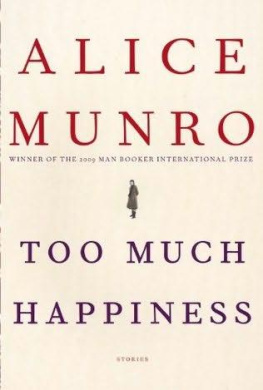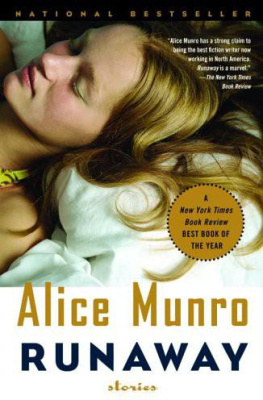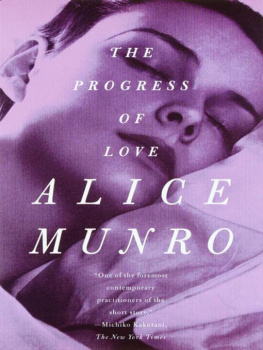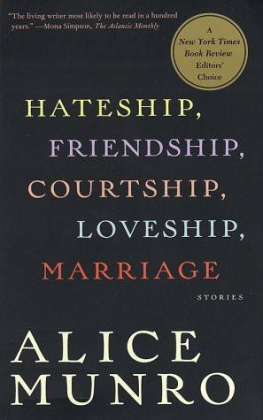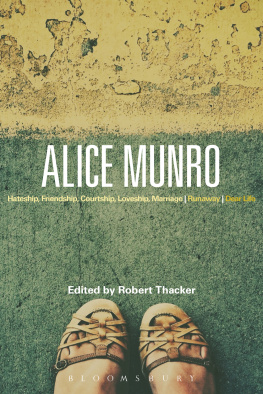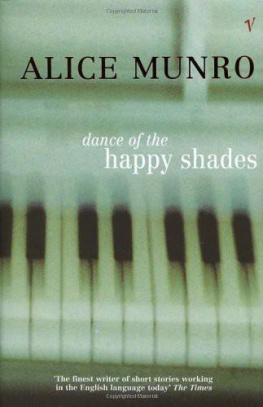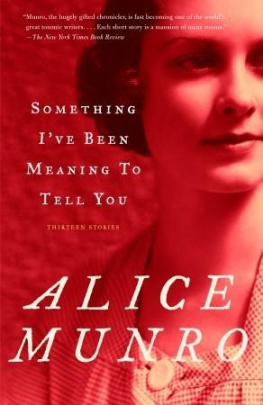ROYAL BEATINGS
ROYAL BEATING. That was Flos promise. You are going to get one Royal Beating.
The word Royal lolled on Flos tongue, took on trappings. Rose had a need to picture things, to pursue absurdities, that was stronger than the need to stay out of trouble, and instead of taking this threat to heart she pondered: How is a beating royal? She came up with a tree-lined avenue, a crowd of formal spectators, some white horses and black slaves. Someone knelt, and the blood came leaping out like banners. An occasion both savage and splendid. In real life they didnt approach such dignity, and it was only Flo who tried to supply the event with some high air of necessity and regret. Rose and her father soon got beyond anything presentable.
Her father was king of the royal beatings. Those Flo gave never amounted to much; they were quick cuffs and slaps dashed off while her attention remained elsewhere. You get out of my road, she would say. You mind your own business. You take that look off your face.
They lived behind a store in Hanratty, Ontario. There were four of them: Rose, her father, Flo, Roses young half brother, Brian. The store was really a house, bought by Roses father and mother when they married and set up here in the furniture-and upholstery-repair business. Her mother could do upholstery. From both parents Rose should have inherited clever hands, a quick sympathy with materials, an eye for the nicest turns of mending, but she hadnt. She was clumsy, and when something broke she couldnt wait to sweep it up and throw it away.
Her mother had died. She said to Roses father during the afternoon, I have a feeling that is so hard to describe. Its like a boiled egg in my chest, with the shell left on. She died before night, she had a blood clot on her lung. Rose was a baby in a basket at the time, so of course could not remember any of this. She heard it from Flo, who must have heard it from her father. Flo came along soon afterward, to take over Rose in the basket, marry her father, open up the front room to make a grocery store. Rose, who had known the house only as a store, who had known only Flo for a mother, looked back on the sixteen or so months her parents spent here as an orderly, far gentler and more ceremonious time, with little touches of affluence. She had nothing to go on but some eggcups her mother had bought, with a pattern of vines and birds on them, delicately drawn as if with red ink; the pattern was beginning to wear away. No books or clothes or pictures of her mother remained. Her father must have got rid of them, or else Flo would. Flos only story about her mother, the one about her death, was oddly grudging. Flo liked the details of a death: the things people said, the way they protested or tried to get out of bed or swore or laughed (some did those things), but when she said that Roses mother mentioned a hard-boiled egg in her chest she made the comparison sound slightly foolish, as if her mother really was the kind of person who might think you could swallow an egg whole.
Her father had a shed out behind the store, where he worked at his furniture repairing and restoring. He caned chair seats and backs, mended wickerwork, filled cracks, put legs back on, all most admirably and skillfully and cheaply. That was his pride: to startle people with such fine work, such moderate, even ridiculous charges. During the Depression people could not afford to pay more, perhaps, but he continued the practice through the war, through the years of prosperity after the war, until he died. He never discussed with Flo what he charged or what was owing. After he died she had to go out and unlock the shed and take all sorts of scraps of paper and torn envelopes from the big wicked-looking hooks that were his files. Many of these she found were not accounts or receipts at all but records of the weather, bits of information about the garden, things he had been moved to write down.
Ate new potatoes 25th June. Record.
Dark Day, 1880s, nothing supernatural. Clouds of ash from forest fires.
Aug 16, 1938. Giant thunderstorm in evng. Lightning str. Pres.
Church, Turberry Twp. Will of God?
Scald strawberries to remove acid.
All things are alive. Spinoza.
Flo thought Spinoza must be some new vegetable he planned to grow, like broccoli or eggplant. He would often try some new thing. She showed the scrap of paper to Rose and asked, did she know what Spinoza was? Rose did know, or had an idea she was in her teens by that time but she replied that she did not. She had reached an age where she thought she could not stand to know any more, about her father, or about Flo; she pushed any discovery aside with embarrassment and dread.
There was a stove in the shed, and many rough shelves covered with cans of paint and varnish, shellac and turpentine, jars of soaking brushes and also some dark sticky bottles of cough medicine. Why should a man who coughed constantly, whose lungs took in a whiff of gas in the war (called, in Roses earliest childhood, not the First, but the Last, War), spend all his days breathing fumes of paint and turpentine? At the time, such questions were not asked as often as they are now. On the bench outside Flos store several old men from the neighborhood sat gossiping, drowsing, in the warm weather, and some of these old men coughed all the time too. The fact is they were dying, slowly and discreetly, of what was called, without any particular sense of grievance, the foundry disease. They had worked all their lives at the foundry in town, and now they sat still, with their wasted yellow faces, coughing, chuckling, drifting into aimless obscenity on the subject of women walking by, or any young girl on a bicycle.
From the shed came not only coughing but speech, a continual muttering, reproachful or encouraging, usually just below the level at which separate words could be made out. Slowing down when her father was at a tricky piece of work, taking on a cheerful speed when he was doing something less demanding, sandpapering or painting. Now and then some words would break through and hang clear and nonsensical on the air. When he realized they were out, there would be a quick bit of cover-up coughing, a swallowing, an alert, unusual silence.
Macaroni, pepperoni, Botticelli, beans
What could that mean? Rose used to repeat such things to herself. She could never ask him. The person who spoke these words and the person who spoke to her as her father were not the same, though they seemed to occupy the same space. It would be the worst sort of taste to acknowledge the person who was not supposed to be there; it would not be forgiven. Just the same, she loitered and listened.
The cloud-capped towers, she heard him say once.
The cloud-capped towers, the gorgeous palaces.
That was like a hand clapped against Roses chest, not to hurt, but astonish her, to take her breath away. She had to run then, she had to get away. She knew that was enough to hear, and besides, what if he caught her? It would be terrible.
This was something the same as bathroom noises. Flo had saved up and had a bathroom put in, but there was no place to put it except in a corner of the kitchen. The door did not fit, the walls were only beaverboard. The result was that even the tearing of a piece of toilet paper, the shifting of a haunch, was audible to those working or talking or eating in the kitchen. They were all familiar with each others nether voices, not only in their more explosive moments but in their intimate sighs and growls and pleas and statements. And they were all most prudish people. So no one ever seemed to hear, or be listening, and no reference was made. The person creating the noises in the bathroom was not connected with the person who walked out.
They lived in a poor part of town. There was Hanratty and West Hanratty, with the river flowing between them. This was West Hanratty. In Hanratty the social structure ran from doctors and dentists and lawyers down to foundry workers and factory workers and draymen; in West Hanratty it ran from factory workers and foundry workers down to large improvident families of casual bootleggers and prostitutes and un successful thieves. Rose thought of her own family as straddling the river, belonging nowhere, but that was not true. West Hanratty was where the store was and they were, on the straggling tail end of the main street. Across the road from them was a blacksmith shop, boarded up about the time the war started, and a house that had been another store at one time. The Salada Tea sign had never been taken out of the front window; it remained as a proud and interesting decoration though there was no Salada Tea for sale inside. There was just a bit of sidewalk, too cracked and tilted for roller-skating, though Rose longed for roller skates and often pictured herself whizzing along in a plaid skirt, agile and fashionable. There was one streetlight, a tin flower; then the amenities gave up and there were dirt roads and boggy places, front-yard dumps and strange-looking houses. What made the houses strange-looking were the attempts to keep them from going completely to ruin. With some the attempt had never been made. These were gray and rotted and leaning over, falling into a landscape of scrub hollows, frog ponds, cattails, and nettles. Most houses, however, had been patched up with tarpaper, a few fresh shingles, sheets of tin, hammered-out stovepipes, even cardboard. This was, of course, in the days before the war, days of what would later be legendary poverty, from which Rose would remember mostly low-down things serious-looking anthills and wooden steps, and a cloudy, interesting, problematical light on the world.


